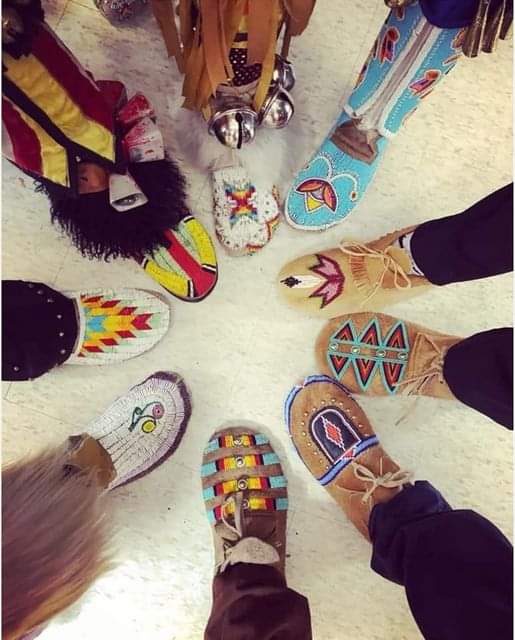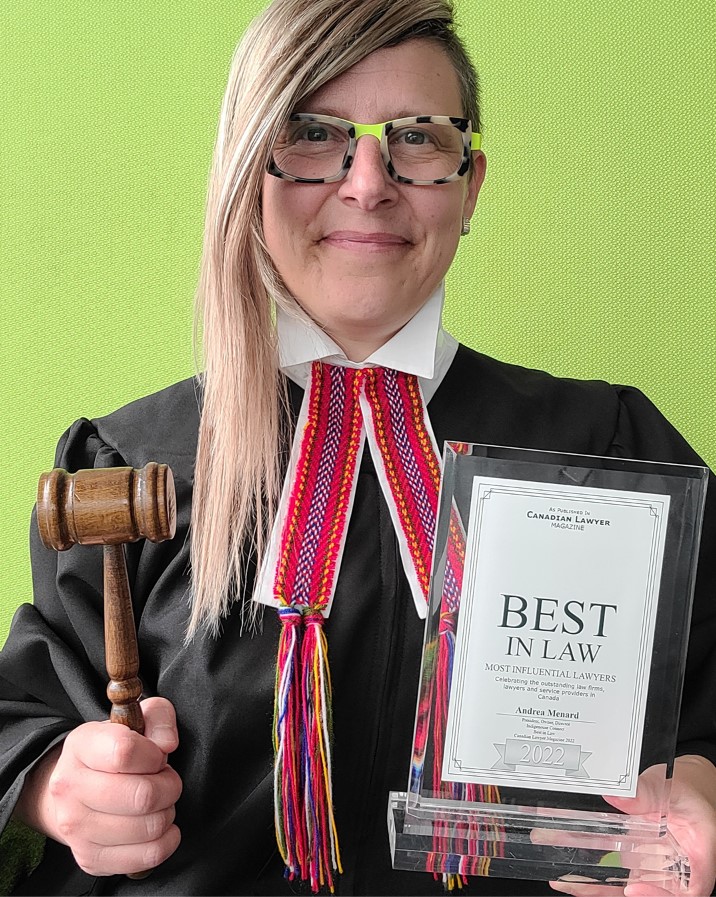The Seven Grandfather Teachings: An Ethical Framework For Decolonizing Legal Practice
The Seven Grandfather Teachings are a set of guiding principles that have been passed down through generations by the Anishnaabe Nations. These teachings include Wisdom, Love, Respect, Bravery, Honesty, Humility, and Truth, and offer a powerful foundation for ethical lawyering and decolonizing legal practices and systems. These teachings can be applied in legal practice to gain a deeper understanding and respect towards the differences in approaching problems, unlearn current approaches, and develop newer, more thoughtful, and creative solutions.
The relevance of the Seven Grandfather Teachings for ethical lawyering and decolonizing legal practices and systems cannot be overstated. These teachings are rooted in Indigenous ways of knowing and can provide a framework for a more respectful, collaborative, and relationship-based approach to legal work that is grounded in the principles of reconciliation. By incorporating these teachings into their work as a guide, legal professionals and leaders can work towards decolonizing legal practices and systems, and work towards achieving justice for all people, particularly for Indigenous communities who have been historically oppressed.
In her article “Reconciliation and Ethical Lawyering: Some Thoughts on Cultural Competence,” Pooja Parmar explores the limitations of cultural competence as a response to the Truth and Reconciliation Commission (TRC) Calls to Action 27 and 28. Parmar argues that while cultural competence is often driven by genuine commitments to reconciliation within the legal profession in Canada, an uncritical embrace of the concept is inadequate and might even prove to be counterproductive despite best intentions.
Parmar suggests that a limited and deficient conception of cultural competence is unlikely to assist lawyers in representing Indigenous clients better or change Indigenous peoples’ experience with the legal system more broadly. She contends that the TRC Calls to Action demand a response that centres accountability, and that the legal profession must recognize Calls 27 and 28 as a unique opportunity to innovate and lead by rethinking legal education, competence, and ethical lawyering in a multi-juridical space such as Canada.
The TRC Calls to Action 27 and 28 call upon lawyers and judges to become more educated on Indigenous laws and legal traditions, as well as the history and ongoing legacy of residential schools. Cultural competence, as currently understood, places the burden of responsibility for understanding and respecting Indigenous peoples and their legal traditions on individual lawyers and judges. Parmar argues that this approach is insufficient because it places too much emphasis on individual responsibility and fails to address systemic issues within the legal profession and the broader society.
Parmar suggests that the legal profession must move beyond cultural competence and embrace a broader understanding of accountability that considers the role of lawyers and judges in perpetuating systemic oppression against Indigenous peoples. This requires a rethinking of legal education, which should include a more comprehensive understanding of Indigenous legal traditions and the history of colonization in Canada.
Parmar also suggests that the legal profession must recognize the importance of translation in promoting reconciliation between Indigenous and non-Indigenous legal systems. Translation involves not only translating legal documents and language but also translating cultural values and norms. Lawyers must be able to effectively communicate with Indigenous clients and understand the unique legal traditions and customs that underpin their cases.
Parmar’s article highlights the limitations of cultural competence as a response to the TRC Calls to Action 27 and 28. She suggests that the legal profession must recognize the importance of accountability and move beyond cultural competence by rethinking legal education and ethical lawyering. Lawyers must become more familiar with Indigenous legal traditions and history, and understand the role of systemic oppression in perpetuating injustice against Indigenous peoples. By embracing a more comprehensive and nuanced approach to reconciliation, the legal profession can play a crucial role in promoting justice and healing for Indigenous peoples in Canada.
Applying the Anishnaabe Seven Grandfather teachings to Parmar’s article “Reconciliation and Ethical Lawyering: Some Thoughts on Cultural Competence” can provide insight into how we can work towards reconciliation:
- Wisdom: Parmar’s article emphasizes the importance of legal education in promoting reconciliation. By recognizing the limitations of cultural competence and embracing a more comprehensive approach to legal education, lawyers and judges can become more familiar with Indigenous legal traditions and history, and better understand the unique legal contexts of Indigenous peoples and their clients.
- Love: The TRC Calls to Action demand a response that centers accountability and promotes justice and healing for Indigenous peoples. Parmar suggests that the legal profession can play a crucial role in promoting reconciliation by rethinking legal education and ethical lawyering.
- Respect: Parmar argues that a limited and deficient conception of cultural competence is unlikely to assist lawyers in representing Indigenous clients better or change Indigenous peoples’ experience with the legal system more broadly. By embracing a more comprehensive and nuanced approach to reconciliation, lawyers can demonstrate respect for Indigenous legal traditions and the unique legal contexts of Indigenous clients.
- Bravery: Reconciliation requires bravery and a willingness to confront difficult truths about the history and ongoing legacy of colonization in Canada. Parmar suggests that the legal profession must recognize the role of systemic oppression in perpetuating injustice against Indigenous peoples and work towards accountability and justice.
- Honesty: Parmar’s article is an honest critique of the limitations of cultural competence and a call for a more comprehensive approach to reconciliation. By recognizing the limitations of current approaches and embracing a more honest and nuanced approach to reconciliation, the legal profession can play a more meaningful role in promoting justice and healing for Indigenous peoples.
- Humility: Parmar’s article emphasizes the importance of humility in promoting reconciliation. By recognizing the limitations of current approaches and embracing a more comprehensive and nuanced approach to reconciliation, lawyers and judges can demonstrate humility and a willingness to learn from Indigenous legal traditions and history.
- Truth: Parmar’s article is a call for truth and accountability in the legal profession. By recognizing the history and ongoing legacy of colonization in Canada, and the role of lawyers and judges in perpetuating systemic oppression against Indigenous peoples, the legal profession can work towards promoting justice and healing for Indigenous peoples.
In conclusion, the Seven Grandfather Teachings provide a powerful foundation for ethical lawyering and decolonizing legal practices and systems. Incorporating these principles into legal work can lead to a deeper understanding and respect towards the differences in approaching problems and developing skills needed to unlearn current approaches and develop more thoughtful and creative solutions. Parmar’s essay emphasizes the need for lawyers to turn inwards and look at their own profession and the colonial structures that oppress Indigenous Peoples. Critiquing the adversarial model of lawyering, practicing cultural competence and humility, and being accountable for reconciliation are key elements to ethical lawyering. Legal professionals must recognize the role that the legal profession has played in perpetuating systemic injustices and take steps to address these issues. Furthermore, ethical lawyering requires a commitment to ongoing learning, unlearning and relearning, being held accountable to reconciliation, and practicing law by learning and applying how Indigenous Peoples practice justice. As legal professionals, it is our duty to ensure that the legal system not only serves, but is led by all members of society, particularly those whose land we are on.



